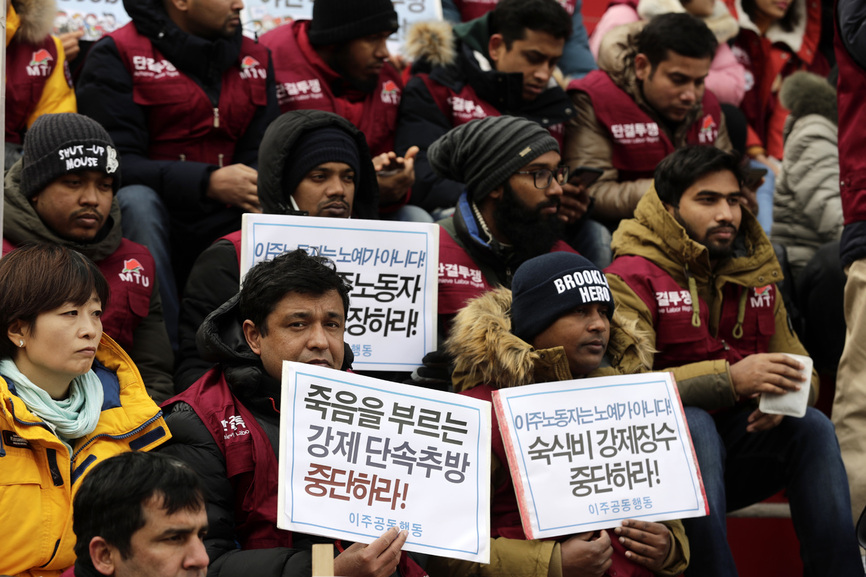 |
|
Migrant workers, labor unions and the Korean Confederation of Trade Unions gather in front of the Sejong Center for the Performing Arts in Seoul on Dec. 16, 2018, two days before the UN-designated International Migrant Day, to call for labor reforms regarding the right of migrant workers to change jobs more easily. (Kim Myoung-jin, staff photographer)
|
Survey shows majority of younger people opposed to migrant workers
Opinions for and against labor migration policies to prepare for a future labor shortage in South Korea remain evenly split, survey results show. A Feb. 17 examination of data on “perceptions of the future and policy preferences in different areas” using online panel data collected on Jan. 18–22 by the National Assembly Futures Institute (NAFI) and the polling firm Embrain from 1,500 South Korean men and women aged 15 to 65 showed 51% of respondents agreeing that South Korea “should expand migration policies to address the labor shortfall issue while adopting cultural and social integration policies for foreign residents.” The responses narrowly outnumbered the 49% who answered that “labor migration should be deterred as much as possible.” In terms of age group, most respondents aged 19 to 29 were opposed to labor migration (54.3%), with respondents in their 50s showing the highest rate of support for labor migration at 56.3%. NAFI conducted the survey for 17 selected “future policies” where national preferences were seen as needing to be gauged. Participants were shown two opposing responses for 17 policy areas including energy, artificial intelligence, big data, migration, and real estate and asked to select which position they favored; the area of migration policy showed the sharpest divisions overall, the institute explained. “When it comes to migration policy, a cautious approach would appear to be necessary when determining the direction of future policies,” NAFI said. In the area of real estate policy, 54.5% of respondents favored “substantially reinforcing the concept of public land ownership,” outnumbering the 45.5% who favored “limited application” of the concept. In terms of family systems, 59.9% of respondents favored “recognizing living communities as family,” compared to 40.1% who advocated “recognizing only the current form of family.” By Seo Young-ji, staff reporter Please direct comments or questions to [english@hani.co.kr]






